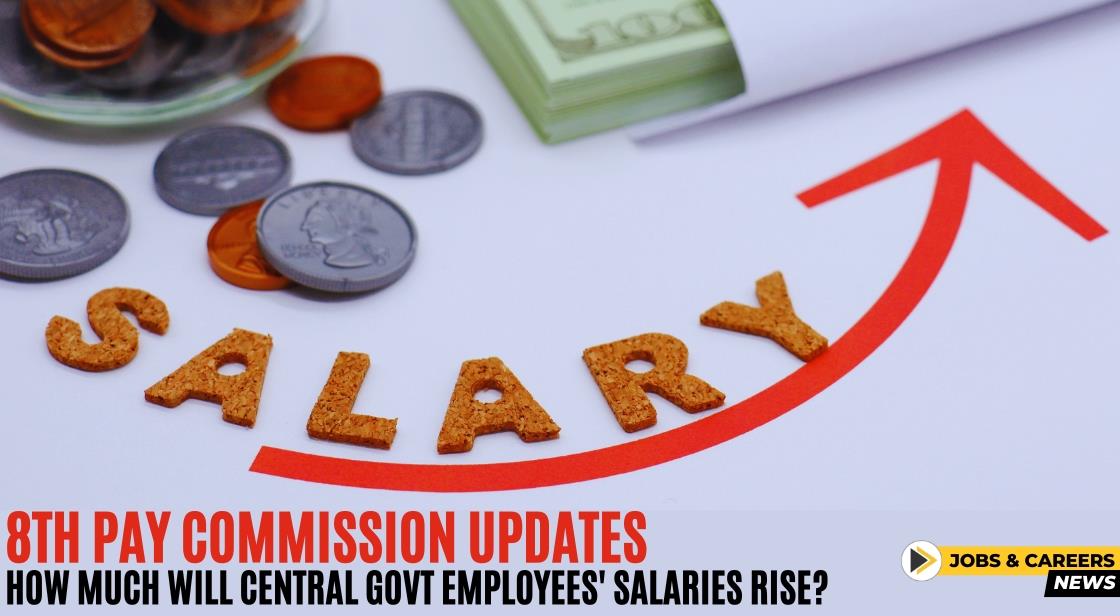8th Pay Commission Updates: How Much Will Central Govt Employees' Salaries Rise?

News Synopsis
With the formation of the Narendra Modi 3.0 government, central government employees are eagerly awaiting news on the much-anticipated 8th Pay Commission. While there's no official confirmation yet, media reports suggest discussions might begin soon.
A Potential Timeline for Implementation of 8th Pay Commission
Central government employees have traditionally benefited from pay commission revisions every ten years. The 7th Pay Commission was implemented in January 2016, following this pattern. Based on this historical trend, experts project the 8th Pay Commission to be implemented around January 2026.
However, some sources suggest the commission might be formed earlier, in 2025. This could potentially expedite the revision process and lead to a sooner implementation date.
Anticipated Salary Hike and Changes
The 8th Pay Commission is expected to bring significant changes for central government employees, including a potential jump in salaries. A key factor to watch is the fitment factor, which determines the basic pay calculation.
Experts believe the fitment factor could rise to 3.68 times. Considering the current minimum basic salary of Rs. 18,000, this increase would translate to a substantial rise of Rs. 8,000, taking the basic pay to Rs. 26,000.
It's important to remember that these are projections based on media reports and expert opinions. The actual implementation timeline and salary revisions will depend on official announcements from the government.
Impact and Beneficiaries
The 8th Pay Commission, if implemented, is expected to benefit over a crore (ten million) central government employees and pensioners. A potential salary hike would provide much-needed financial relief and improve their overall standard of living.
Broader Implications of 8th Pay Commission
Economic Impact of 8th Pay Commission
The implementation of the 8th Pay Commission will have broader economic implications, potentially increasing the purchasing power of a significant portion of the population. This could lead to a boost in various sectors of the economy due to increased consumer spending.
Government Budget Considerations
The government will need to carefully consider the budgetary impact of implementing the recommendations of the 8th Pay Commission. While the salary increases are beneficial for employees, they also represent a significant financial commitment from the government.
Understanding Pay Commissions in India: A Review of Salaries and Benefits
In India, the government establishes Pay Commissions to periodically evaluate and recommend changes to the salary structure, allowances, and benefits for its civilian employees and military personnel. These commissions play a crucial role in ensuring fair compensation for government workers while considering the country's economic realities.
Key Functions of a Pay Commission:
-
Salary and Allowance Review: Pay commissions comprehensively examine the existing pay structures and recommend adjustments to salaries, allowances, and other benefits like bonuses. Employee performance and productivity are considered when evaluating bonus norms.
-
Pension Scheme Assessment: The existing pension scheme and other retirement benefits for government employees are also analyzed by the commission.
-
Balancing Economic Considerations: Recommendations are made with careful consideration of the nation's prevailing economic conditions, available resources, and potential financial impact on state governments.
Focus on Central Government Employees:
Pay Commissions primarily address the needs of personnel working for the Central Government of India.
A History of Pay Commissions:
Since India's independence in 1947, at least seven pay commissions have been established. Following a ten-year cycle, the central government forms a new commission to revise the salary structure for its vast workforce.
The First Pay Commission:
The very first Pay Commission in India was formed in January 1946 under the leadership of Srinivasa Varadachariar. The Department of Expenditure within the Ministry of Finance oversees the constitutional framework governing these commissions.
The 7th Pay Commission:
Currently, central government employees in India receive their salaries based on the recommendations of the 7th Pay Commission, which was established in February 2014.
You May Like









